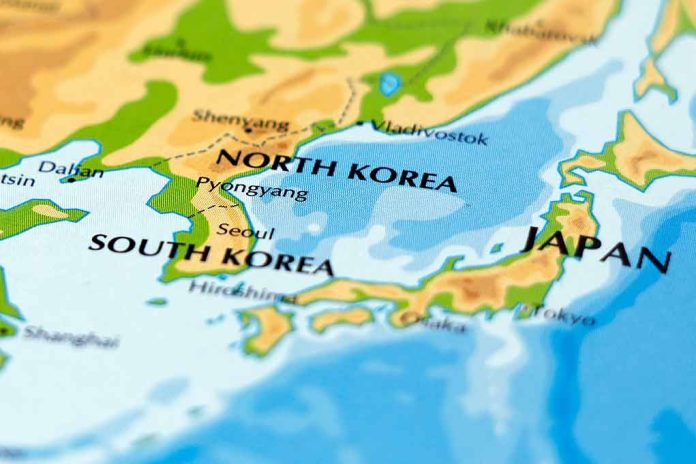
South Korea plunges into chaos as President Yoon’s martial law declaration sparks political crisis and international concern.
At a Glance
- President Yoon Suk Yeol’s attempt to declare martial law was blocked by the legislature.
- Former defense minister Kim Yong Hyun attempted suicide while in detention.
- North Korea labels South Korea a “fascist dictatorship” amid the turmoil.
- The opposition party prepares for another impeachment attempt against President Yoon.
- The international community closely watches the unfolding crisis.
Martial Law Declaration Ignites Political Firestorm
South Korea has been thrust into a state of political turmoil following President Yoon Suk Yeol’s controversial attempt to declare martial law. The move, which was ultimately blocked by the legislature, has raised serious concerns about the nation’s political stability and evoked memories of past military regimes. The declaration, intended to protect against “anti-state forces,” marked the first such attempt in South Korea since 1980.
The fallout from this decision has been swift and severe. Police are now investigating President Yoon’s office as part of the martial law case, while the opposition Democratic Party is gearing up to submit a new motion for impeachment. The political disarray has not only affected domestic affairs but has also unsettled financial markets and impacted foreign policy.
Former Defense Minister’s Suicide Attempt Deepens Crisis
Adding to the gravity of the situation, former defense minister Kim Yong Hyun attempted suicide while in detention related to the martial law case. Kim, who was arrested for allegedly orchestrating a rebellion and abusing authority, is accused of advising President Yoon to impose martial law and deploy troops to prevent a parliamentary vote.
Kim’s attempted suicide has further intensified the scrutiny on the Yoon administration. Prosecutors now have up to 20 days to decide on formally indicting Kim, while investigations continue to determine if President Yoon and others committed the crime of rebellion.
North Korea Condemns South as “Fascist Dictatorship”
The crisis has not gone unnoticed by South Korea’s northern neighbor. North Korea’s state media has broken its silence on the matter, condemning President Yoon and labeling South Korea a “fascist dictatorship.” This rare commentary on South Korean internal affairs has added another layer of complexity to the already tense situation on the Korean Peninsula.
“The puppet Yoon Suk Yeol, who had already faced a serious crisis of governance and impeachment, declared martial law unexpectedly and unleashed the guns of the fascist dictatorship on the people,” said a statement released by North Korea’s state-run KCNA news agency.
Despite the harsh rhetoric from Pyongyang, experts suggest that North Korea is unlikely to make any military moves against South Korea at this time. The North’s military focus appears to be elsewhere, with elite forces reportedly involved in conflicts such as the one in Ukraine.
International Community Watches Closely
The unfolding crisis in South Korea has caught the attention of the international community, with many expressing concern about the potential vulnerabilities in South Korean society. The situation has raised questions about the stability of one of East Asia’s most important democracies and a key U.S. ally in the region.
“The international community is sternly watching, with assessments that the martial law incident exposed vulnerabilities in South Korean society … and that Yoon Suk Yeol’s political life could face an early end,” KCNA added.
As the crisis continues to unfold, all eyes remain on South Korea. The coming days and weeks will be crucial in determining the fate of President Yoon’s administration and the long-term political stability of the nation. With the opposition preparing for another impeachment attempt and investigations ongoing, the situation remains fluid and unpredictable.





